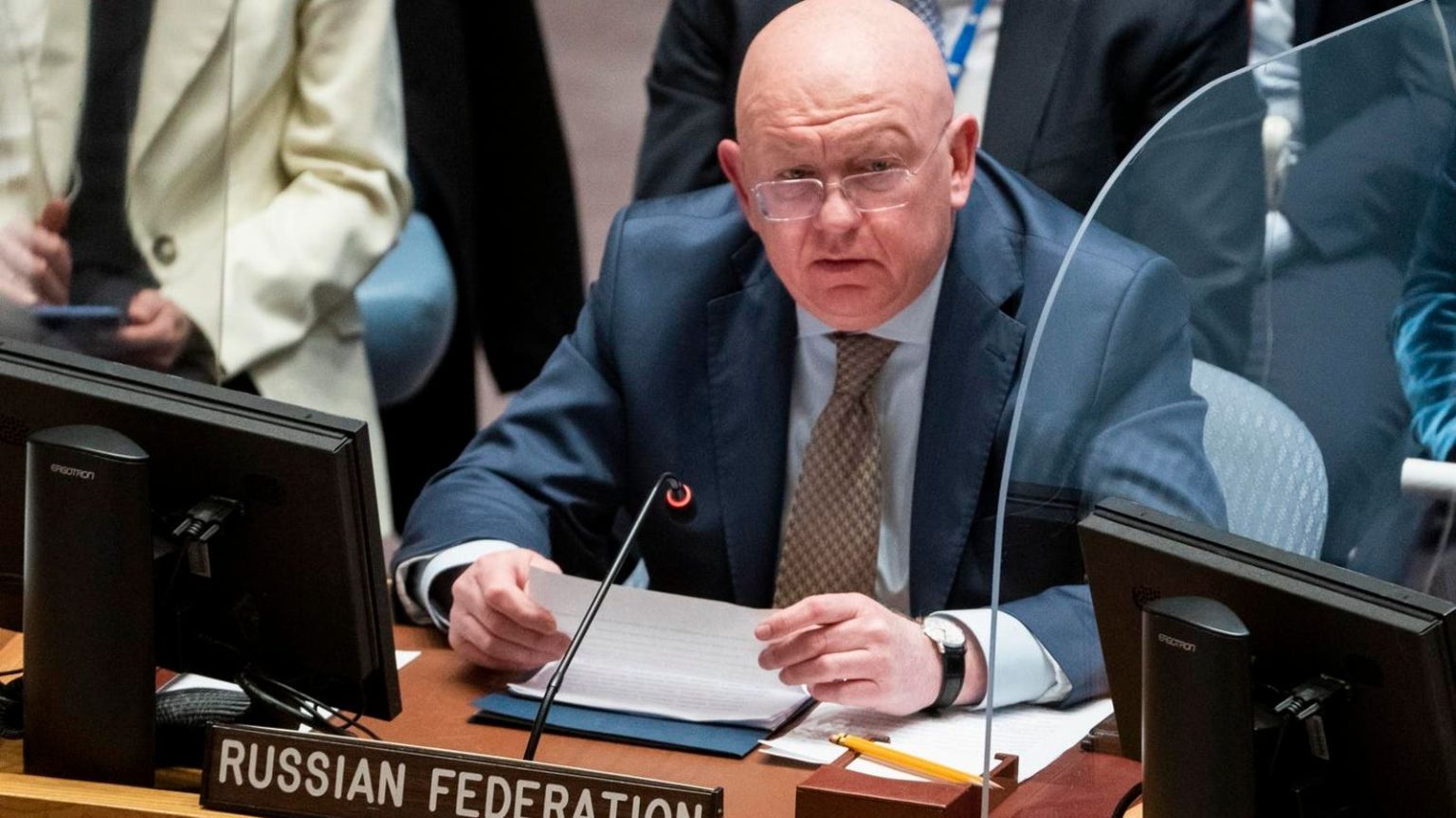Western leaders have strongly criticized Russia for vetoing a United Nations Security Council resolution to abolish a panel of experts that monitors North Korea’s compliance with U.N. sanctions on its nuclear weapons and missiles programs. This vote came amidst allegations that North Korea is supplying weapons to Russia in its war against Ukraine. The resolution would have renewed the mandate of the panel of experts, which has been in place for the past 14 years to monitor North Korea’s adherence to sanctions aimed at curbing its nuclear weapons and ballistic missile program. However, Russia’s lone veto effectively abolished the panel, despite the approval of 13 out of the 15 member countries, with China abstaining.
Russian Ambassador Vasily Nebenzya justified the veto by claiming that the sanctions targeting North Korea were losing their relevance and accused the panel of releasing biased information about North Korea’s programs. He called for an open and honest review of existing sanctions and accused the West of trying to strangle Pyongyang. In contrast, U.S. Ambassador Robert Wood defended the panel’s work, stating that they have conducted credible, fact-based, independent investigations of North Korea’s unlawful weapons program and sanctions evasion efforts. He also alleged that Russian efforts to silence the panel came after it began reporting on Russia’s violations of U.N. Security Council Resolutions.
Multiple world leaders have condemned Russia’s veto, with White House National Security spokesman John Kirby calling it a reckless action that highlights Russia’s growing relationship with North Korea. French Ambassador Nicolas de Rivière expressed deep regret over the veto, claiming it purposely ends the panel’s work of reporting on North Korea’s arms deliveries to Russia. Ukraine’s foreign minister Dmytro Kuleba suggested that Moscow’s veto amounted to a guilty plea, indicating that military cooperation between Russia and North Korea was no longer being hidden. The tension between the United States and Russia in the U.N. Security Council has been further exacerbated by recent events, including Russia and China vetoing a U.S.-penned resolution calling for a cease-fire in Gaza.
The veto of the resolution has raised concerns about North Korea’s continued weapons program acceleration and ballistic missile testing. The Center for Arms Control and Non-Proliferation reported that North Korea had conducted at least four missile tests in 2024, following 36 tests in 2023. There has been speculation about a potential cooperation between Russia and North Korea as Russia’s conflict with Ukraine intensifies, with reports last year indicating that North Korea had delivered military equipment to Russia. The veto of the resolution and the subsequent criticism from Western leaders shed light on the complex dynamics and alliances within the United Nations Security Council, as countries navigate geopolitical tensions and conflicts around the world.


